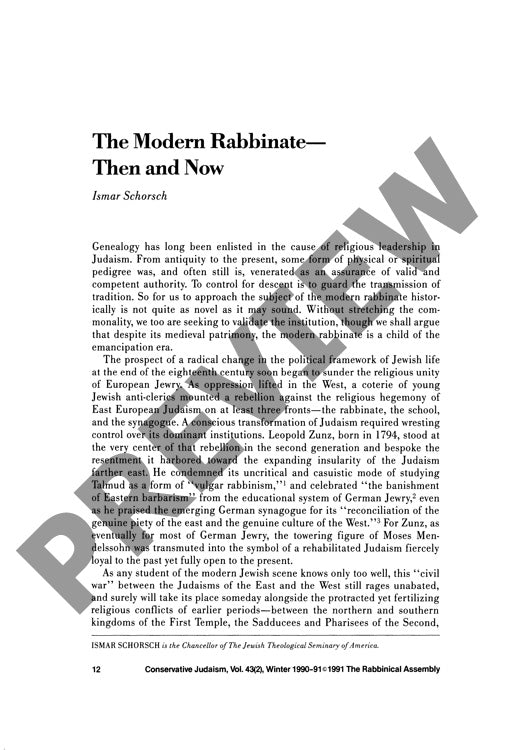The Modern Rabbinate Then and Now
Couldn't load pickup availability
European Jewish emancipation in the late eighteenth century sparked a radical reinvention of the rabbinate that reverberates through modern Judaism. As Jews gained civic equality, Western reformers mounted a three-pronged rebellion against traditional Polish rabbinic authority, challenging its dominance over rabbinical appointments, educational institutions, and synagogue practices. Through analysis of primary sources and comparative historical methods, this research reveals how emancipation carved a deep divide between Eastern and Western European Judaism. While preserving elements of medieval tradition, the modern rabbinate emerged as a fundamentally new institution. Its leaders transformed from purely halakhic authorities serving closed communities into scholarly ambassadors of Judaism - typically holding doctoral degrees and engaging regularly with government officials and Christian intellectuals. This metamorphosis transcended religious movements, occurring not just in Reform circles but across the Jewish spectrum. The shift reflected a deeper change in Jewish identity: from corporate belonging to individual religious choice in newly emancipated societies.

More Information
-
Physical Description
-
Publication Information
Published 1990-1991
ISBN
-
Publication Credits
Ismar Schorsch

